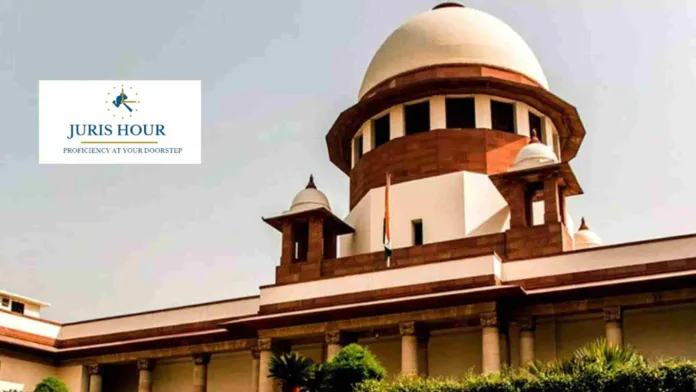The Supreme Court is all set to decide the issue whether cash refunds are permissible for CENVAT credit that was transitioned into GST and later reversed under protest.
The bench of Justice Ujjal Bhuyan and Justice Manmohan has observed that Prima facie, the High Court could not have passed the order of stay after holding the Appeal to be not maintainable and after recording that the Writ Petition and the Appeal are disposed of as not pressed.
The Commissioner of CGST & Central Excise Belapur Commissionerate filed the writ petition before the Bombay High Court challenging the CESTAT’s order by which the cash refund of Rs. 256.45 crores was allowed.
The department contended that Section 142 (6)(a) of the CGST Act 2017, which, in terms prohibits refund of any amount of CENVAT credit in cash where the balance of the said amount as on the appointed date has been carried forward under the CGST Act 2017.
The assessee has objected to the maintainability of the Appeal and the Petition, by pointing out that under Section 35-G of the Central Excise Act, 1944, under which the Appeal was purported to be instituted, an Appeal shall lie to the High Court from the CESTAT Orders, not being an order relating, among other things, to the determination of any question having a relation to the rate of duty of excise or the value of goods for the purposes of assessment.
The Bombay High Court stayed the CESTAT’s direction for cash refund of Rs.256.45 Crores for a period of eight weeks. This Petition and the Appeal are disposed of as not pressed with liberty to the Petitioner/Appellant to prefer Appeal/s before the Supreme Court by invoking the provisions of Section 35-G and 35-L of the Central Excise Act, 1944, within eight weeks from the date of uploading of this order. However, the direction in the CESTAT’s order for a cash refund of Rs. 256.45 Crores to the department shall be stayed for eight weeks.
The assessee filed the appeal under Section 35-G of the Central Excise Act, 1944 against the order of the Customs, Excise & Service Tax Appellate Tribunal, Mumbai (CESTAT) allowing the Service Tax Appeal of the petitioner. Subsequently, petitioner had filed a Service Tax Miscellaneous Application for release of the amount, which was allowed granting four weeks’ time to the Revenue to comply with the order passed in Appeal.
The order was passed under Rule 41 of the CESTAT (Procedure) Rules, 1982. The High Court has held the Appeal to be not maintainable. The order passed in the Service Tax Miscellaneous Application is a consequential one emanating from the order passed by CESTAT. The High Court has recorded that both the Writ Petition and the Appeal are disposed of as not pressed with liberty to the respondent to prefer Appeal before the Supreme Court, the High Court has stayed the direction of CESTAT for refund for a period of eight weeks.
The Apex Court stayed the order of the High Court. This order shall however not preclude the respondent from filing Appeal before this Court under Section 35-L of the Central Excise Act, 1944 if not already filed which shall be decided on its own merits and/or limitation.
Case Details
Case Title: Tenormac Enterprises Pvt. Ltd. Versus The Commissioner Of Cgst And Central Excise
Case No.: Special Leave to Appeal (C) Nos.16784-16785/2025
Date: 20-06-2025

